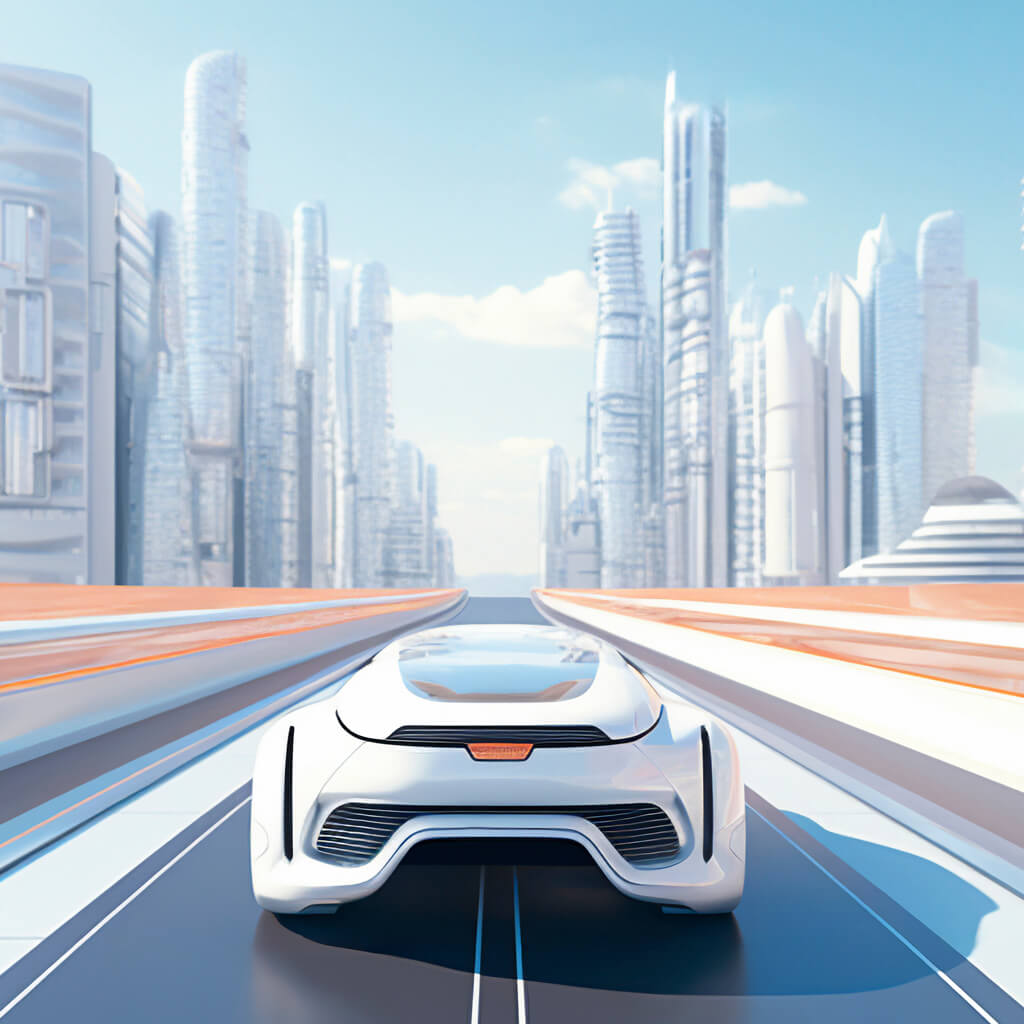The automotive industry is on the brink of a revolution, with electric and self-driving cars set to transform the way we think about transportation. These innovative vehicles offer a glimpse into a future that is not only more environmentally friendly but also safer and more efficient. With the potential to reduce carbon emissions and improve road safety, the widespread adoption of electric and autonomous vehicles could have a significant impact on our world.
Electric cars have already begun to gain traction in the market, with manufacturers such as Tesla leading the way. These vehicles offer a host of benefits, including reduced emissions and lower operating costs. By running on electricity instead of gasoline, electric cars produce zero tailpipe emissions, helping to improve air quality and reduce our carbon footprint. In addition, electric cars are often more efficient to run and maintain, resulting in significant cost savings for owners over time.
Self-driving cars, also known as autonomous vehicles, are another game-changer in the automotive industry. Using a combination of sensors, cameras, and advanced software, these cars can navigate roads and traffic without human input. This technology has the potential to revolutionize transportation by improving road safety, increasing efficiency, and providing new levels of convenience for passengers. With self-driving cars, the possibility of a future where individuals can reclaim commuting time and where those unable to drive due to age or disability gain greater independence becomes increasingly realistic.
While the potential benefits are immense, there are also challenges and obstacles to overcome. One of the main hurdles is the development and refinement of the technology itself. Ensuring the safety and security of autonomous vehicles is paramount, and extensive testing and regulatory frameworks are necessary to address potential concerns. Another challenge lies in the transition to electric vehicles and the need for infrastructure to support them. The widespread adoption of electric cars will require a robust network of charging stations, and the development and accessibility of these stations are key to facilitating this shift.
In the coming years, we can expect to see continued advancements in both electric and self-driving car technologies. Manufacturers will likely introduce newer models with improved performance, extended range, and more sophisticated features. As the technology matures, we may also witness the emergence of fully autonomous vehicles capable of handling more complex driving scenarios, such as urban environments and adverse weather conditions.
The future of transportation is undoubtedly electric and autonomous. These innovations offer a host of benefits that could transform our world for the better. While challenges remain, the potential rewards are immense, and it is an exciting time for the automotive industry and consumers alike as we embrace this new era of mobility.
As we look ahead, it is clear that the development and adoption of electric and self-driving cars will have a significant impact on the automotive landscape. With their environmentally friendly and safety-enhancing capabilities, these vehicles have the potential to shape a more sustainable and efficient future for all. The excitement and anticipation surrounding this technological revolution are palpable, and it is now up to manufacturers, policymakers, and consumers to work together to realize the full potential of these groundbreaking innovations.
One of the key benefits of electric cars is their contribution to environmental sustainability. By running on electricity, these vehicles help reduce our reliance on fossil fuels and can significantly lower carbon emissions. In addition, electric cars are often quieter and have lower maintenance costs compared to traditional gasoline-powered cars. This makes them an attractive option for those seeking a more environmentally friendly and cost-effective mode of transportation.
Self-driving cars, on the other hand, offer a host of benefits centered around convenience and safety. With the ability to navigate roads independently, autonomous vehicles provide an opportunity for commuters to reclaim time spent driving and engage in other activities, such as working, relaxing, or enjoying entertainment. This added flexibility and productivity have the potential to enhance the overall commuting experience. Furthermore, self-driving cars hold the promise of improved road safety.
The impact of these advancements extends beyond individual commuters and affects various industries. For example, the introduction of self-driving cars has the potential to disrupt the ridesharing and delivery services industries. Autonomous vehicles can provide efficient and cost-effective transportation options, changing the way people utilize these services. Additionally, with the integration of advanced sensors and software, self-driving cars can enhance road safety, reducing the risk of accidents caused by human error and improving overall traffic management.
While the future of electric and self-driving cars is promising, it is important to acknowledge that challenges remain. One key area of concern is the ethical implications of autonomous vehicles. As these cars make complex decisions on the road, questions arise about how they should prioritize safety and ethical values. Ensuring that self-driving cars make ethical choices while maintaining safety remains a significant hurdle to be addressed through careful programming and the development of industry-wide standards.
Another challenge lies in addressing public perception and trust in these new technologies. Some people may be hesitant to embrace self-driving cars due to concerns about safety, job displacement, or the potential loss of driving as a skill and pastime. It is essential to have open discussions and provide transparent information to help ease these concerns and foster a broader understanding of the benefits and limitations of autonomous vehicles.
In conclusion, the future of electric and self-driving cars is filled with exciting possibilities and important considerations. As we move forward, it is essential to continue pushing technological boundaries, addressing challenges, and engaging in open dialogue to ensure that these innovations bring about positive change and enhance our lives in meaningful ways. The journey towards a more sustainable, efficient, and autonomous future is well underway, and it will be fascinating to see the continued advancements and their impact on our world.
